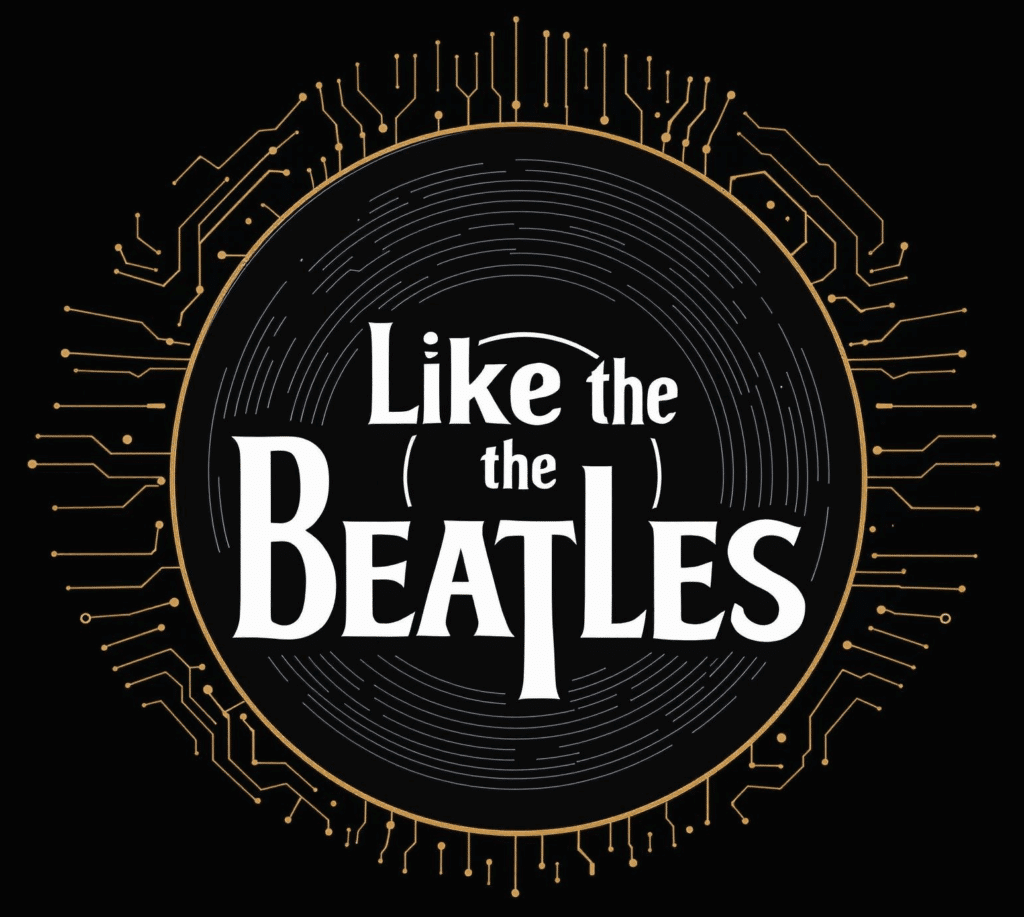There’s a fascinating journey to explore when you explore into the origins of The Beatles, a band that transformed the music landscape and shaped pop culture worldwide. In this post, I will guide you through the nine vital steps that took them from their modest roots in Liverpool to becoming a revolutionary force in entertainment. Each milestone reveals not only their incredible talent but also the challenges they faced along the way, providing valuable insights into how they became legendary icons in history.
Early Years in Liverpool
For The Beatles, their journey began in the vibrant city of Liverpool, where a diverse cultural landscape inspired their artistry. Growing up in the post-war environment, they were surrounded by a melting pot of music, art, and innovation, which laid the foundation for their future success. This city acted as a breeding ground for their creativity and shaped their initial musical influences.
The Formation of The Quarrymen
Beside the bustling streets of Liverpool, John Lennon formed a skiffle group called The Quarrymen in 1956. This group, which initially included friends and classmates, marked the starting point for what would eventually evolve into one of the biggest bands in history. Their youthful enthusiasm and local performances nurtured a sense of community and artistic expression.
Influences and Initial Performances
With a deep-rooted passion for rock and roll, The Quarrymen drew inspiration from artists like Buddy Holly and Chuck Berry. As they performed in local venues, their sound started to gain traction, capturing the attention of young audiences. In these early days, friendships and mutual influences transformed their music into a reflection of their Liverpool upbringing, giving birth to the iconic sound they would later be known for.
It was during this formative period that The Quarrymen began to carve out their unique identity. They played in various small venues, allowing their sound to evolve organically. The electrifying atmosphere of these performances ignited a spark of excitement among local fans, solidifying the band’s place in Liverpool’s music scene. It was a pivotal moment, as their influences merged with the lively culture of the time, paving the way for the revolutionary music that was to come.
Rise to Fame
There’s no doubt that The Beatles experienced a meteoric rise to fame, captivating audiences around the world with their infectious melodies and charismatic performances. As I explore this journey, I find it fascinating how their unique sound resonated with a generation. For a deeper understanding of their impact, check out The Beatles: Music That Shaped a Generation.
First Recordings and Managerial Changes
Between the early days of the Cavern Club and their venture into the studio, The Beatles faced significant managerial changes that impacted their trajectory. Initially managed by Allan Williams, they later came under the wing of Brian Epstein, whose guidance proved instrumental in refining their image and securing their first record deal.
Breakthrough with “Love Me Do”
By late 1962, I can hardly stress the significance of “Love Me Do” as The Beatles’ debut single, marking their official entry into the music scene. It was a pivotal moment, establishing their unique sound and gaining traction on the charts. With its catchy harmonica riff and relatable lyrics, “Love Me Do” not only showcased their songwriting talents but also solidified the synergy between John Lennon and Paul McCartney. The single’s modest success generated buzz, revealing their potential to resonate with the public and paving the way for future hits that would dominate the airwaves.
The Beatlemania Phenomenon
Unlike anything seen before, Beatlemania swept the globe in the 1960s, fueled by an unprecedented level of excitement and devotion from fans. The combination of their catchy music, youthful charisma, and the cultural shifts of the era turned the Beatles into an iconic symbol of a generation. As thousands thronged to their concerts, I could see how this overwhelming enthusiasm reshaped not just the music industry, but also the very fabric of popular culture worldwide.
Impact of Television and Tours
Behind the scenes, television and relentless touring played a significant role in elevating the Beatles’ status. With their electrifying appearances on shows like The Ed Sullivan Show, the band captured the attention of millions in America and abroad. Their energy and charm broke through the screen, creating a connection with fans that propelled their popularity to unprecedented heights.
Record Sales and Global Recognition
Across the globe, the Beatles experienced record-breaking sales that were unmatched by any other band of their time.
Record sales skyrocketed during the Beatlemania era, with their albums quickly going multi-platinum and setting sales milestones that redefined the music industry. Their singles, such as “I Want to Hold Your Hand” and “Hey Jude,” dominated the charts, showcasing their enduring appeal. This paved the way for an extraordinary wave of global recognition, solidifying their legacy as one of the most influential bands in history. The impact of their musical genius and cultural significance continues to resonate, making them a permanent fixture in the fabric of music and society. With their innovative approaches to recording and a fearless embrace of new styles, you can see how they shaped not only rock music but also cultural trends for generations to come.
Musical Evolution
To understand The Beatles’ impact on music, we must explore their incredible musical evolution. From their early days in Liverpool, they constantly pushed the boundaries of creativity, incorporating diverse genres and experimenting with their sound. This transformation not only shaped their identity but also influenced countless artists worldwide.
Innovative Studio Techniques
By embracing innovative studio techniques, The Beatles revolutionized how music was recorded. They collaborated with producer George Martin, who introduced elements like multi-tracking, tape loops, and non-traditional instruments, allowing the band to create rich soundscapes that were groundbreaking for their time.
Iconic Albums: “Revolver” to “Sgt. Pepper’s”
Across the release of their iconic albums, particularly from “Revolver” to “Sgt. Pepper’s,” The Beatles showcased a remarkable level of artistry and experimentation that would redefine popular music. These albums highlighted their desire to evolve, pushing against conventional norms.
With “Revolver,” The Beatles took significant strides into psychedelia and complex songwriting, influencing the direction of popular music. The follow-up, “Sgt. Pepper’s Lonely Hearts Club Band,” is often heralded as one of the greatest albums of all time. It featured conceptual artistry and innovative studio techniques that included orchestral arrangements and sound collages, effectively creating a sonic landscape that was previously unheard. I believe this era marked a pivotal moment for The Beatles, showcasing their ability to shift cultural paradigms and leaving an indelible mark on the music industry.
Cultural Impact
All four members of The Beatles transformed not just music but also the cultural landscape of the 1960s and beyond. Their revolutionary approach to songwriting, presentation, and performance galvanized a generation, influencing not only music but also ideas about love, freedom, and expression. The Beatles’ impact extended to various facets of society, including fashion, politics, and social norms, cementing their legacy as icons of cultural change.
Fashion and Lifestyle Influences
An integral part of The Beatles’ legacy is their influence on fashion and lifestyle. From their iconic suits in the early years to their psychedelic attire later on, they set trends that captivated fans worldwide. Their hairstyle, the mop-top, became synonymous with the ’60s, and their embrace of casual wear challenged traditional standards of appearance, showcasing a new sense of individuality and freedom that resonated deeply with their audience.
Political and Social Commentary
Impact on politics and society was a defining aspect of The Beatles’ evolution as a band. They didn’t shy away from addressing significant global issues in their music, often embedding poignant commentary on love, war, and peace within their lyrics. Their songs like “Revolution” and “Give Peace a Chance” encouraged dialogue about social justice and unity, making it clear that their influence extended beyond mere entertainment.
Considering the volatile socio-political climate of the 1960s, The Beatles used their platform to advocate for peace and love. Their music resonated with the youth involved in movements that opposed the Vietnam War and advocated for civil rights. By weaving messages of social change into their art, The Beatles gave a voice to a generation yearning for progress, encouraging fans to actively participate in shaping a better world. This pivotal role in social discourse solidified their status as cultural icons whose music became anthems of hope and revolution.
Later Years and Transformation
After achieving unprecedented success, The Beatles underwent significant transformations during their later years. As their individual interests began to diverge, so did the band’s dynamics, leading to a fascinating yet tumultuous period that would ultimately alter the course of their careers and the music industry.
Solo Projects and Band Dynamics
Across the late 1960s, each member began to explore solo projects, revealing their distinct artistic identities. This shift enriched their music but also strained their collaboration, as personal aspirations often interjected within the group’s unity, leading to growing tensions that were hard to ignore.
The Breakup and Lasting Legacy
For The Beatles, the end was marked by a complex web of conflict and creative differences. Though the breakup shocked fans, it allowed each member to pursue their own paths, leaving an enduring legacy that reshaped popular music.
Solo efforts during and after the breakup highlighted the individual strengths of each member, with projects varying from John Lennon’s introspective works to Paul McCartney’s melodic compositions. The impact of their separation paved the way for a lasting cultural legacy that continues to inspire new generations of artists and fans alike, evoking emotions and connections that surpass their time together. Their discography remains a testament to their collective brilliance and individual brilliance, solidifying their status as icons in music history.
Conclusion
Upon reflecting on the incredible journey of The Beatles from their humble beginnings to a cultural phenomenon, I realize how their innovation and charisma transformed the music landscape. As you explore their nine pivotal steps, it’s evident that their impact extends beyond just music, touching various aspects of society and popular culture. Understanding their evolution helps you appreciate the profound legacy they left behind, inspiring countless artists and fans around the world. It’s a testament to the power of creativity and collaboration, reminding us all of the magic that can emerge from passion and dedication.










